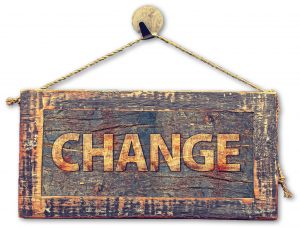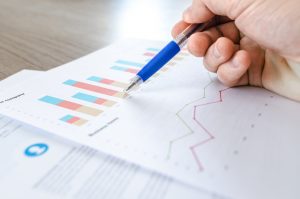My inability to find data and evidence on Palestine is one major reason for writing this article. I could not even find supporting evidence before commenting on the large number of advocacy initiatives we participate in and hear about every day.
The size of the advocacy endeavor itself could be huge, but not necessarily its impact. We are characterized by knee-jerk reactions in making quick decisions without carefully considering evidence. Rarely are our development projects or our regulations and policies driven by data, purpose, or long-term vision. While the global approach of evidence-based decision-making and the analytics industries is growing, we choose to stay on a data-free diet while we plan for sustainable growth. We love to inflate numbers and chat about development, but we forget actual change and its impact on future generations that seek a safe and secure future in Palestine. Despite the political context, which narrows every path towards real development, the generation and dissemination of knowledge will help lower the gap between outcomes and reality.
Advocacy, in its simplest terms, refers to taking action and making change. If you advocate for no purpose you will reach absolutely nowhere. If you do not expose truth and bring facts to the table, you are not engaging in advocacy work. In order to find facts, you need to collect data and turn it into knowledge; and then you must turn knowledge into policy, law, and regulations, which eventually will bring about real change. There are several types of advocacy: product advocacy that is mainly driven by brand ambassadors and market influencers; legal advocacy to monitor laws and regulations and protect legal rights and operations; and most importantly, systems advocacy, the kind of advocacy that focuses on influencing and changing our political, social, cultural, and economic ecosystem.
A change in the system needs a well-informed advocacy plan. Organizations that own data can advocate on three different levels: on a policy level, through lobbying and direct communications with decision makers; on a community level, through awareness and campaigning to gather support for a specific issue or cause; and on a stakeholder level, by engaging stakeholders and building their capacity to help in the mission to change the system.
Advocacy should come with concrete evidence to be transparent, credible, and strong. However, only simple communications and visual storytelling will make your evidence more appealing to the average person.
Data can be collected through various types of primary research and experiments, or through computerized information systems. Any data-generating information system, whether it is made for customers, trade, health, human rights, or real estate, is considered a wealthy and instant source of evidence, as long as the data is analyzed and utilized to build indicators and real knowledge. While research can help investigate an issue, information systems can provide real-time data immediately for rapid response on alarming issues. They can deliver accurate and timely information when it comes to studying the prevalence of a disease, the growth of an industry, the increase in women’s rights violations, or the geography of road traffic accidents. Development projects should computerize their own procedures, forms, and operations, and build their capacity in the field to reap the benefits of evidence. However, raw data is useless and cannot be used as evidence; that is why firms, organizations, and governments worldwide look for data scientists and analysts to exploit the huge chunks of data they collect on a daily basis.
When you have the superpower of knowledge, you can report the obstacles of your industry to policy makers who will have to cooperate, especially when you pass on this knowledge to the public. Nevertheless, advocacy should be carefully directed so that it does not drive the negative advocacy of sabotage or chaos. Communicating with decision-makers comes in different forms, including direct face-to-face communications, reports, policy briefs, or appeal letters. On the other hand, information given to the public and media should be subtly crafted and disseminated. Translate complicated sets of data into simple information that makes sense to the public. These tools may include infographics, videos, fact sheets, whitepapers, and brief reports. If you work in technology, health, water, or agriculture, do not expect the average citizen to understand your jargon and technical terms, rather curate messages in the simplest form possible. Be concise and build an emotional-messaging frame to break through the rigidity of your numbers and charts. Offer people a catchy story rather than a huge load of boring technical information.
You will also need the support of advocates, who could be your fans, community, partners, peers, or any stakeholder group. You need to engage your community from grassroots to grasstops. Partner with other organizations that give you access to more active and interested people in your community. In some cases, you will also need to build the capacity of your stakeholders and educate them on your evidence and its implications. If you are advocating for a human-rights issue, you will need to train experts who understand the problem and who want to work on it as much as you do. If you are advocating for a health issue, you will need to engage health syndicates and educate them on the importance of such evidence. If you are advocating against a new labour legislation, you need to educate employees on the consequences of such legislation. To plan your stakeholders’ engagement, you may run a power-mapping exercise to identify your stakeholders, determine how powerful and influential they are, and evaluate to what extent each of them supports or opposes your advocacy plans.
The next most important part of any advocacy activity is monitoring and evaluation. If your advocacy is data driven, but your performance is not, then you are trapped in a vicious circle. Collecting data and insights throughout the process is imperative and helps you measure the impact of your campaign. Before starting your campaign, plan well and set measurable performance indicators to monitor and track across the advocacy journey. Overlooking the measurement of your communication and advocacy campaigns will deplete your budget and result in no change on the ground.
They argue about whether data is the new oil of the 21st century. I believe that it is more valuable. Data is infinite, reusable, easily replicable, vital, and insightful. It is not the kind of commodity you store until it is needed, but the resource you immediately utilize to extract evidence and knowledge.
Data-driven advocacy will bolster our development initiatives in Palestine, especially when it is tailored to meet national needs. Health evidence can be utilized to promote healthy lifestyles; statistics on the number of failing investments can inform regulatory bodies to soften their regulations; reporting of human rights violations can be publicized and taken to court; data on the increasing number of imported products should convince the government to restrict imported products and protect local ones. Evidence is also needed to identify national priorities. Which is more important? A Palestinian IT sector that provides technical support to the Israeli market, or an IT sector that innovates and sells software to regional markets? Is it better to build startups with a regional expansion potential or startups with solutions to our own problems in Palestine? What is the leading cause of pollution in Palestine? And what do we do to prevent it?
Answers to many of these questions could be available at governmental institutions, think tanks, universities, and research institutes. I am quite optimistic and glad that several organizations are progressing in data generation and advocacy, yet they still need the government’s support and willingness to share data and disseminate knowledge. Data is a valuable asset only if its true value is unlocked and utilized by those who can influence change.





